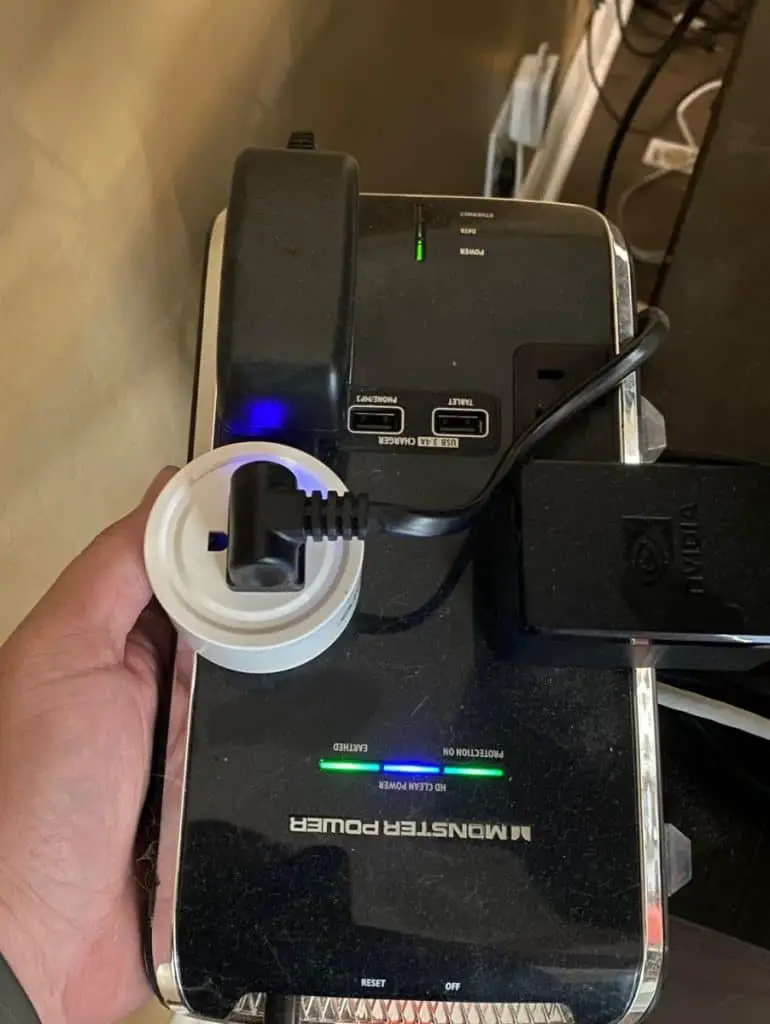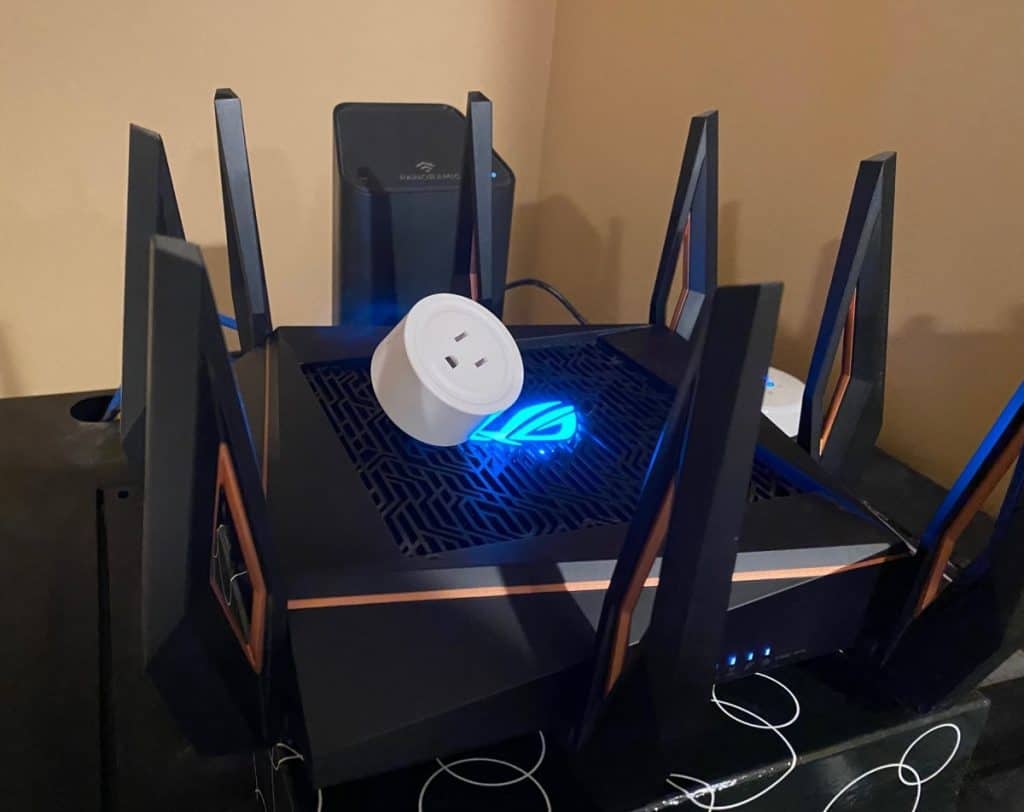Technology in this era is revolutionizing to fulfill two aims – to automate all tasks previously performed manually, and to conserve power and energy towards an eco-friendly earth. Smart plugs help fulfill both purposes, but the critical question is – can they be hazardous for your appliances?
Smart plugs do not damage appliances. As long as you get a certified smart plug compatible with your appliance’s power rating, this device won’t cause any harm. Smart plugs are beneficial because they help conserve energy, automate tasks, allow scheduling, and ensure your family’s safety.
A smart plug allows you to control appliances, lighting, devices, and other electronics using your smartphone. This article explains how smart plugs work, their types, benefits and limitations, and the factors to consider before buying one. If you’re doubtful about getting smart plugs, keep reading to make a firm decision!

Smart Plugs: How They Work
Smart plugs can make any appliance or device at your home “smart.” They allow you to control your preferred devices remotely through an application or a voice assistant such as Alexa, Google Home, etc. The plug does this by controlling the power flowing to the appliance.
Anyone can get a smart plug to work since it’s pretty straightforward. Here are the steps:
- Plug your smart plug into any power outlet.
- Download the manufacturer’s application (usually available for iOS and Android).
- Once downloaded, you’ll find the smart plug information in the application, along with the controls.
- Connect an appliance to the smart plug, and voilà! You’ll be able to turn it on/off through your phone. Some plugs are compatible with voice assistants, so you only have to give voice commands to switch them on or off.
This video shows you how to use smart plugs in your bedroom, living room, kitchen and bathroom:
Smart Plugs: Benefits and Limitations
The world is transitioning into a technological hub at a fast pace. One such technological advancement is smart plugs, which, of course, come with upsides and downsides.
Benefits of Smart Plugs
Smart plugs offer several advantages, including the following:
Power-Saving and Safety Assurance
Depending upon your smart plug’s model, you can get an energy monitoring feature to help you keep track of the amount of power the connected appliance consumes. Using this information, you can optimize the appliances at your home accordingly. These devices also notify you if any of your appliances start using abnormally large amounts of energy.
Smart plugs also help you check what appliances are operating at your home when you’re out and let you switch them off. So if you leave in a hurry and forget to turn your lights off, you can do so even after heading out!
Automation
Smart plugs convert any ordinary device into a smart one through the Internet of Things (IoT) technology. You can control them using a voice assistant or the device’s application. To summarize, you don’t have to get up to physically turn your appliance on or off!
Another advantage is that you can schedule your appliances to turn on and off according to your convenience. Want your coffee to be ready before you leave in the morning? No worries, your smart plug is going to do just that.
Limitations of Smart Plugs
Nothing is perfect, and that includes smart plugs, which have certain limitations, such as:
Type of On/Off Switch
A smart plug works by stopping and continuing the flow of electricity to your appliance, so you’ll have to keep it on at all times. Hence, smart plugs work best with lighter appliances featuring mechanical switches. On the other hand, an appliance with an electronic switch won’t exploit the smart plug’s potential.
An electronic switch relies on memory and will oppose its current state whenever triggered. Basically, a smart plug is of no use to appliances with electronic switches because it can’t control their state.
In contrast, if you keep the mechanical switch in the ‘ON’ position, it remains there. This is why you have to connect smart plugs to appliances with their mechanical switch in the ‘ON’ position.
Diversity in Smart Plugs
You’ll find several types of smart plugs in the market, including these:
Smart Plug Power Strips
These large strips allow you to attach multiple appliances and feature USB ports for charging phones. They’re very convenient as you can time them to turn off after a while, so your phone’s battery isn’t damaged by overcharging. However, they take up more space, and you’ll have to be careful about the electrical ratings of the appliances attached to avoid dangerous outcomes.
Smart Plugs for the Outdoors
These smart plugs have IP ratings that protect them from dust or rainfall, ensuring they function correctly outdoors. Just make sure you don’t push your luck by accidentally spraying the plug with a hose because it is an electrical appliance at the end of the day.
Dimmer Smart Plugs
Dimmer smart plugs are specifically designed for use with lights and lamps. The smart plugs allow you to turn lights on or off and manage their brightness automatically. Hoever, you need to keep in mind that these aren’t very versatile in their use.
Energy Monitoring Plugs
Environmentalists or folks looking to lessen their bills by monitoring energy consumption will love these plugs. They collect data and keep you updated about your energy consumption.
Some reports might be more detailed, giving you the total time an appliance was powered on, its average usage time over a period, and an estimate of total energy cost. Others might report hours of usage within a specific time. A downside is that you might notice inconsistencies in the reports across different smart plugs.
Choosing the Right Smart Plug
It would help if you considered several factors such as the below before getting a smart plug:
Connectivity
Different plugs facilitate various connections, including Wi-Fi, Bluetooth, Zigbee, etc. As a result, you’ll need to consider your preference as well as convenience. Also, most smart plugs work on 2.4GHz, and very few work on 5GHz Wi-Fi.

Compatibility With Voice Assistant
There are several voice assistants, including Alexa, Google Home, Apple HomeKit, Siri, and Cortana. Not all smart plugs in the market support each of these, so you need to ensure that the plug you go for is compatible with the voice assistant you use.
Power Rating
You’ll find 2 major categories of smart plugs in the market:
- 10A smart plugs. These are compatible with small appliances, such as lights, fans, TV, mobile/laptop chargers, kitchen appliances, etc.
- 16A smart plugs. These are compatible with high-powered appliances like washing machines or air conditioners.
REMEMBER: A smart plug can only damage your appliance if you apply more load than it can bear. Hence, it’s wiser to use smart plugs with lighter appliances instead of high-powered ones.
Extra Features
Some smart plugs do much more than just turning an appliance on or off. For instance, there’s the inclusion of USB ports for charging phones, something we recommend you invest in. The other thing is that some plugs are waterproof while others can offer surge protection and energy monitoring. Ultimately, you will need to decide on the features you need before buying one.
Conclusion
If you’re concerned about taking the next step in technology’s evolution because you think smart plugs will damage your appliances, we have some good news. Smart plugs provide more benefits than disadvantages. They also come in various types, making them an investment worth making. Just take care of the power rating, and you’re good to go.
